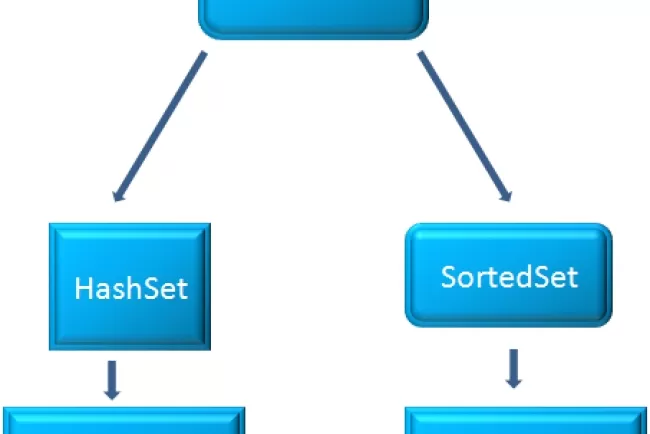Decentralized Recommender Systems: Achieving Privacy and Efficiency through Secure Graph Filters
In our increasingly connected world, recommender systems have become essential for providing personalized content across platforms like e-commerce sites, social media, and streaming services. These systems thrive on user data, making personalized suggestions based on past behavior and preferences

. However, this reliance on data collection raises significant privacy concerns. The use of advanced models, like Graph Neural Networks (GNNs), has improved recommendation quality through methods such as item-item adjacency matrices and low-pass filters. But these improvements often require centralized data storage, which can expose sensitive user information to potential risks.
In response, recent research has focused on decentralizing these systems to keep data local and secure. A new paper introduces two innovative decentralized frameworks—PriviRec and PriviRec-k—that aim to perform key computations for recommender systems without centralizing user data. By using privacy-preserving techniques such as Multi-Party Computation (MPC) and distributed Singular Value Decomposition (SVD), these frameworks tackle the challenge of balancing privacy with high-quality recommendations.
Decentralization and Privacy in Recommender Systems
Recommender systems function by analyzing vast amounts of user data to detect patterns and suggest relevant products or content. Traditional systems, such as Collaborative Filtering (CF) and Matrix Factorization (MF), rely on centralized data to generate recommendations. However, as data privacy issues have become more prominent, there has been a growing interest in decentralized approaches that let users retain control over their data.
In decentralized systems, data is kept on local devices rather than stored on a central server, which reduces privacy risks. However, decentralization introduces its own set of challenges, particularly in ensuring model accuracy, reducing communication costs, and handling complex graph-based filters. Solutions like Federated Learning (FL) and Gossip Learning (GL) have emerged, where FL coordinates learning across local devices, and GL allows devices to exchange model updates without a central server. Despite their potential, scaling these techniques to sophisticated systems, such as graph-based recommendation models, remains a challenge.
PriviRec and PriviRec-k: Decentralized Graph Filters
The authors propose two decentralized methods—PriviRec and PriviRec-k—that securely compute graph-based filters for recommender systems while preserving user privacy.
PriviRec: Secure Computation of Graph Filters
PriviRec decentralizes the computation of essential graph filters like the item-item adjacency matrix, which identifies item similarities. It employs Secure Aggregation to ensure that while users collaborate to compute these filters, their personal data is never exposed.
Key features of PriviRec:
- Secure Aggregation: Enables collaborative computation without revealing individual user data.
- Privacy Preservation: Data is never centralized, ensuring sensitive information remains confidential.
- Competitive Performance: Achieves recommendation accuracy on par with centralized systems.
PriviRec-k: Balancing Accuracy and Communication Efficiency
PriviRec-k builds on PriviRec by introducing low-rank approximations to reduce communication overhead. This makes the method more scalable and efficient, particularly for larger datasets. By approximating certain matrix components, PriviRec-k reduces the amount of data exchanged between participants without sacrificing recommendation accuracy.
Key features of PriviRec-k:
- Low-Rank Approximation: Reduces communication costs while maintaining accuracy.
- Scalability: Designed to handle larger datasets, making it ideal for real-world applications.
- Efficiency: Strikes a balance between reducing communication costs and maintaining model performance.
Empirical Benchmarking: Demonstrating the Effectiveness of PriviRec and PriviRec-k
The authors validate the effectiveness of these decentralized methods through experiments on benchmark datasets such as Gowalla, Yelp2018, and Amazon-Book, which involve up to 50,000 users. The results show that PriviRec and PriviRec-k not only preserve user privacy but also maintain competitive accuracy when compared to centralized systems.
- Accuracy: Both methods deliver recommendation accuracy comparable to centralized models, even when decentralized.
- Privacy Preservation: Secure Aggregation and low-rank approximations ensure that user data remains confidential.
- Communication Efficiency: PriviRec-k significantly reduces communication overhead, making it feasible for large-scale use.
While the proposed methods show promise, there are still areas for further exploration:
- Advanced Privacy Techniques: The integration of differential privacy (DP) or homomorphic encryption could offer additional layers of security.
- Model Complexity: Extending these decentralized frameworks to handle more advanced models like GNNs could further enhance recommendation quality.
- Scalability to Larger Datasets: Future research could focus on scaling these techniques to handle even larger datasets and real-time data processing needs.
Conclusion: Bridging the Gap Between Privacy and Performance
This research introduces a novel approach to decentralizing graph-based filters in recommender systems, allowing for the preservation of user privacy without sacrificing recommendation quality. The PriviRec and PriviRec-k frameworks offer scalable, privacy-preserving solutions that could address the growing concerns about centralized data collection. With privacy regulations becoming increasingly stringent, these decentralized methods provide a promising path for creating more ethical and efficient recommendation systems in the future.
What do you think about the balance between privacy and recommendation accuracy? How do you see privacy-preserving methods impacting the future of recommender systems?
What's Your Reaction?

















